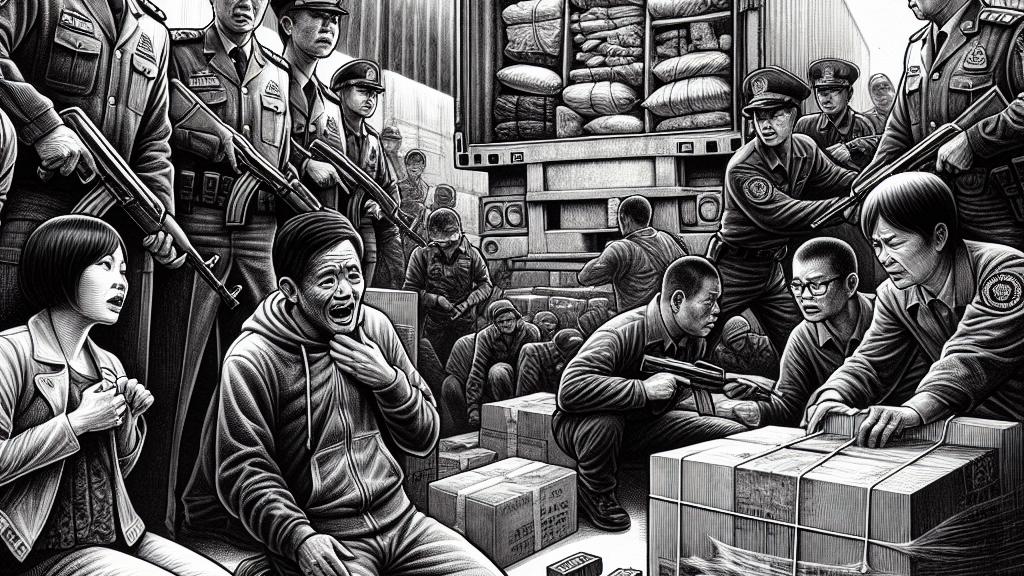Caught Red-Handed: The High-Stakes World of Cross-Border Drug Trafficking in Taiwan!
Overview
- Taiwanese and Thai nationals arrested in a major drug trafficking case.
- Seized drugs valued at NT$2.1 billion ($64 million), including amphetamines and ketamine.
- Case highlights the complexities of international drug smuggling networks and their impacts.

A Major Drug Bust in Taiwan
In a landmark operation, Taiwanese authorities have apprehended one local individual named Hsiao, alongside two Thai nationals, Panna and Kaewsuk, in connection with a large-scale drug trafficking incident. The three were caught attempting to smuggle 525 kilograms of illegal narcotics, including category 2 narcotic amphetamines and category 3 ketamine, into Taiwan. The estimated street value of these drugs is a staggering NT$2.1 billion (about $64 million). The drugs had been cleverly hidden in a shipment of furniture imported from Laem Chabang, Thailand. This successful interception by Taichung Customs agents serves as a testament to the effectiveness of Taiwan's rigorous customs inspections and law enforcement commitment to combating drug-related crimes within its borders.
Criminal Networks and the International Drug Trade
This case underscores the alarming trend of cross-border drug trafficking and the organized criminal networks that facilitate it. These criminal enterprises operate on a massive scale, exploiting global trade routes to transport illegal substances. According to the United Nations Office on Drugs and Crime (UNODC), the financial impact of these illicit activities can be comparable to legitimate economic sectors. For instance, UNODC reports that cocaine trafficking in Colombia generates a staggering profit of between $1.2 billion to $8.6 billion annually. Taiwan's increasing vulnerability to these trafficking attempts emphasizes the need for enhanced international cooperation and information sharing among law enforcement agencies across countries to combat the ever-evolving strategies of drug traffickers effectively.
The Human Cost of Drug Trafficking
Beyond the financial implications, the human cost resulting from drug trafficking is profoundly disturbing. Many individuals told to participate in these trafficking operations become victims of broader human trafficking schemes, deceived by false promises of job opportunities and financial stability. Reports indicate alarming conditions where these victims endure exploitation through forced labor, abuse, and violence. The Taiwanese government has recognized the alarming rise in human trafficking incidents, particularly involving its citizens as they fall prey to traffickers in foreign lands. Thus, there is an urgent imperative for Taiwan not only to enhance law enforcement against narcotics but also to develop comprehensive victim assistance programs. By focusing on rehabilitation and support for trafficking victims, Taiwan can strive to address the socio-economic factors that fuel this crisis while dismantling the organized crime networks responsible for it.

Loading...